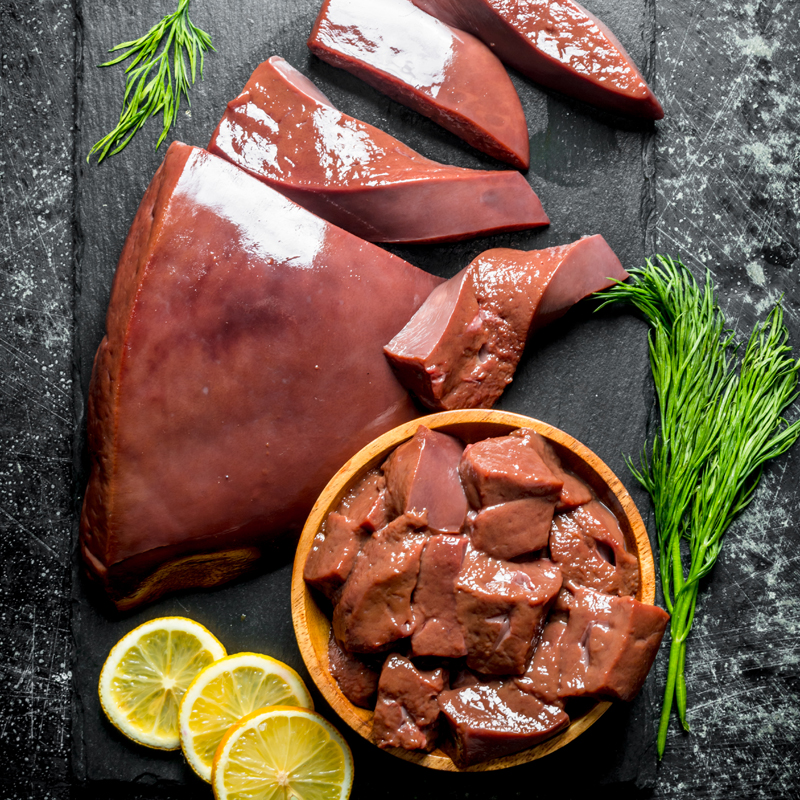
100 gr |
-- |
|
|---|---|---|
| Carbohydrate (gr) | 15.04 |
4928.47 |
| Protein (gr) | 3.59 |
1176.23 |
| Fat (gr) | 12.46 |
4083.43 |
| Fiber (gr) | 1.36 |
445.97 |
| Cholesterol (mg) | 14.64 |
4795.8 |
| Sodium (mg) | 325.27 |
106557.75 |
| Potassium (mg) | 392.16 |
128471.4 |
| Calcium (mg) | 78.15 |
25603.27 |
| Vitamin A (mg) | 46.04 |
15084.01 |
| Vitamin C (mg) | 6.16 |
2019.31 |
| Iron | 0.62 |
203.1 |
Liver is a powerhouse of nutrition, celebrated for its exceptional content of vitamins, minerals, and high-quality proteins. Whether sourced from beef, lamb, or chicken, liver offers a range of health benefits that cater to various needs across different age groups. Its dense nutrient profile makes it a highly valued food in both traditional and modern diets.
The calories of sheep liver are 135 calories per 100 grams.
Iron
Iron is one of the most abundant nutrients in liver, with 100 grams providing approximately 6.1 mg. This heme iron is highly bioavailable, making it an effective food for preventing or treating anemia.
Vitamin A
Liver is among the richest natural sources of vitamin A, which supports vision, immune function, and skin health.
B Vitamins
Liver is packed with B vitamins, including B12, which is essential for energy production, red blood cell formation, and neurological health.
Zinc and Selenium
These trace minerals enhance the immune system, support cellular repair, and provide antioxidant protection against free radicals.
Proteins
High-quality proteins in liver contribute to muscle growth, tissue repair, and overall vitality.
Supports Childhood Development
Liver is especially beneficial for children in their growth years. Its combination of iron, proteins, and vitamins promotes bone development, brain function, and overall physical growth.
Boosts Immunity
Vitamin A and zinc play a pivotal role in fortifying the immune system, enabling the body to resist infections and illnesses.
Energy and Vitality
B vitamins in liver help the body efficiently convert food into energy, combating fatigue and promoting an active lifestyle.
Improves Skin and Vision
The high vitamin A content not only benefits the eyes but also enhances skin health, promoting a healthy complexion.
While liver is a nutritional powerhouse, it should be consumed in moderation due to its high levels of cholesterol and vitamin A. Overconsumption may lead to hypervitaminosis A or elevated cholesterol levels, particularly in individuals with preexisting conditions. Pregnant women should consult their healthcare provider before adding liver to their diet, as excess vitamin A can affect fetal health.
Liver is a versatile ingredient found in many cuisines worldwide. It is commonly prepared as fried liver, liver stews, pâtés, or grilled dishes. Pairing liver with aromatic herbs, onions, or spices enhances its flavor while retaining its rich nutritional content.